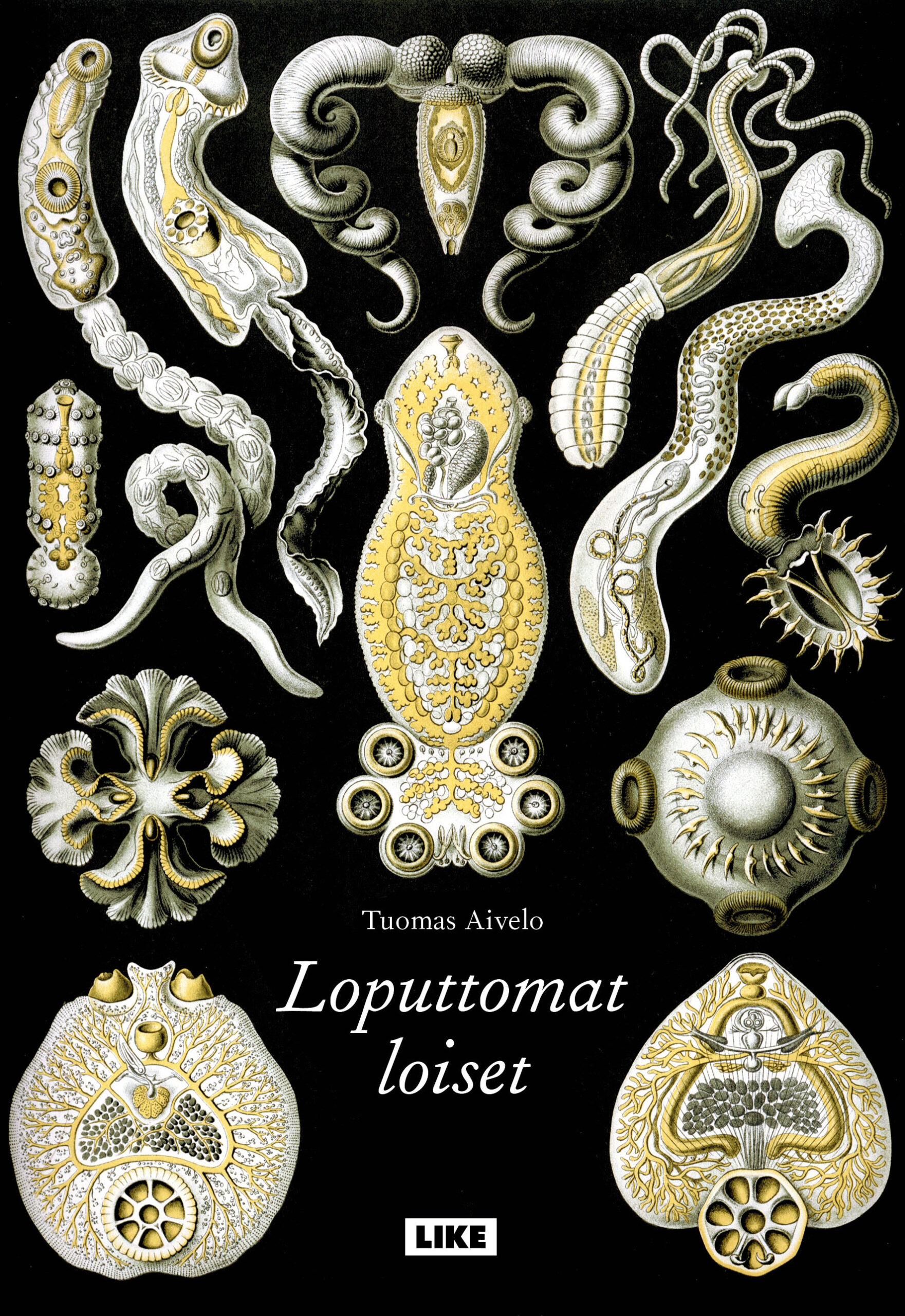Format: EPUB. You can purchase it on Like.fi
- Publisher : Like Kustannus
- Publication date : 2018
- Language : Finnish
- Print length : 341 pages
- ISBN-13 : 978-952-01-1922-5
The Hungarian edition was published by Typotex Publishing Ltd. in 2021 and can be purchased at Typotex.
You Are Never Alone!
There are always guests inhabiting the human body—perhaps the most unsettling realization that most of us would rather ignore. A person can carry over 100 different parasites, ranging from microscopic organisms to tapeworms several meters long. Among them are both harmful and beneficial ones. We’ve all heard—at least from TV commercials—about the helpful bacteria living in our intestines. But these foreign entities can appear in almost any part of the body: in the lungs, liver, muscles, esophagus, brain, blood, skin, and even the eyes.
Endless Parasites unveils an unknown world. As you examine the images of various worms and flukes, you might feel your skin crawl. One thing is certain: this book is not recommended during meals!
People are generally concerned with two questions when it comes to parasites:
How do they cause diseases, and what kind?
And how can such creatures live inside us without us noticing?
From an evolutionary biology perspective, it’s in the parasite’s best interest to go unnoticed—because once discovered, the host will likely try to get rid of it.
Parasites most commonly enter the human body through contaminated food, unwashed fruits and vegetables, or raw and undercooked meats. Pork is especially risky, but beef, chicken, lamb, and even fish can serve as intermediate hosts.
That’s obviously bad news for a meat-eating nation like Hungary, but many dismiss the issue by saying, “Come on, we don’t eat raw meat!”
Indeed, one of the greatest changes in human history was learning how to cook—thoroughly disrupting the lives of parasites. That’s why Israeli historian Yuval Noah Harari calls Homo sapiens the “cooking species.”
Still, we must not forget: bacon, sausage, cold cuts, and head cheese are all raw meats, even if they have undergone some processing. Smoked ham or sausage can easily transmit pork tapeworms, which can cause severe damage to the human body: their larvae can embed themselves in the muscles, heart, eyes, or brain.
To make things even more terrifying, parasites can also influence our mental state.
The link between Toxoplasma gondii infection and increased aggression, self-harming behavior, or bipolar disorder is well known. It likely benefits the parasite to alter the host’s behavior, making it easier for the host to fall prey to predators—allowing the parasite to move on to another animal.
Irritability and nervousness are often caused by toxic substances produced by parasites. Waking up around 2–3 AM is common—this is when the liver tries to clear out those toxins. Other symptoms include nighttime drooling and itching around the anus—caused by certain worms that lay their eggs outside the rectum at night.
The history of humans and parasites is the history of cohabitation.
Thanks to medical science, we’ve gotten rid of some of them, but it remains a grand competition. Not only have parasites adapted to our species’ changing living conditions, but our societies have also adapted to parasites.
This evolution is far from over. Climate change is introducing new and bothersome parasites into our world, and existing ones are becoming resistant to medications.
According to Aivelo, this is normal—this is how evolution works. But if we understand the evolutionary strategies of parasites, we can stay in the race.
Endless Parasites invites readers on an adventurous journey into this world. The author treats parasites with almost sympathetic curiosity, highlighting their role and importance.
Every page of this book is full of surprises, and after reading it, you’ll never look at the world the same way again.

